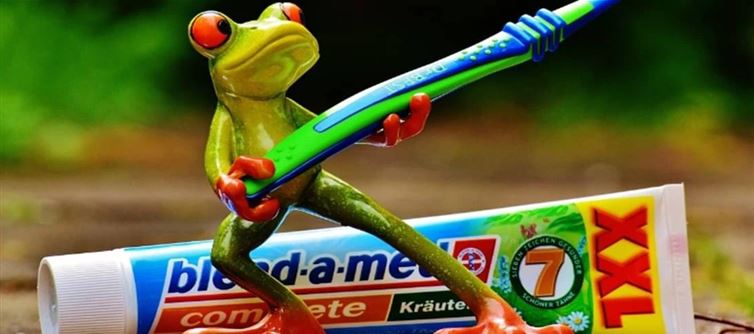
The Guardian reports that 51 toothpaste and tooth powder products were subjected to third-party lab testing as part of the study, which was commissioned by the consumer advocacy group Lead Safe Mama. The outcomes? Arsenic, an extremely hazardous metal known to inflict long-term health harm, was found in 65% of samples, while a startling 90% tested positive for lead.
The findings, according to Lead Safe Mama creator Tamara Rubin, were "unconscionable-especially in 2025," and she said that what most surprised her was that no one had considered this. Among the brands mentioned in concerning test findings include Crest, Sensodyne, Colgate, and Tom's of Maine.
Not Just Adult Toothpaste - Children's Products Also Affected
Worse, 35% of the tested children's toothpaste brands included traces of cadmium, another dangerous heavy metal, and 47% of the brands contained mercury. Because young infants are particularly susceptible to hazardous exposure, this is extremely concerning.
According to the Mayo Clinic, "even small amounts of lead can cause serious health problems," particularly for children under the age of six, who run the danger of suffering permanent physical and mental harm. Lead poisoning can even be lethal in excessive dosages.
Which Brands Were Found to Be Contaminated?
The study flagged several major names, including some marketed as organic or dentist-recommended:
Crest
Sensodyne
Tom's of Maine
Colgate
Dr Bronner's
Davids
Dr Jen
Dr Brite
All products were tested as part of a community-funded, third-party laboratory study coordinated by Lead Safe Mama, LLC.
Regulations Lag Behind Science?
Public health groups have harshly criticized the found levels of heavy metals since they do not violate federal rules, even if they do break Washington state safety restrictions. According to experts, current federal regulations are out of date and do not take into account our current knowledge of heavy metal toxicity.
What you can do?
If your toothpaste is giving you trouble:
• Look for claims that are "natural" or "fluoride-free" on labels; these aren't always safer.
• Check for third-party safety testing and ingredient transparency.
• For safer options, speak with your dentist.
• Children's goods should be closely monitored, and until further notice, stay away from brands linked to the study.
Have you recently looked at your toothpaste? Share this to raise awareness and share your ideas in the comments section!




 click and follow Indiaherald WhatsApp channel
click and follow Indiaherald WhatsApp channel